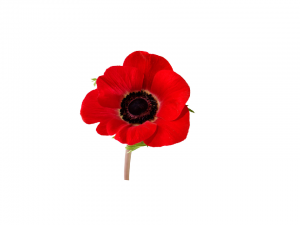
EGGINS, William, Robert and Walter
Robert, Walter and their half brother William were the sons of Alfred Eggins of Tingha NSW. They were born in the Tumut district of NSW. About 1905 the family moved to Tingha where Alfred was a Storekeeper. The three boys also worked in this business.
Robert enlisted first in May 1915, becoming a member of the 19th Battalion, A Company which left Australia on HMAT Ceramic in June. He served in Egypt until his unit went to France in March 1916. Eleven months later he was evacuated to England for treatment at Birmingham War Hospital for Trench Feet. After returning to France he was gassed in April 1918. During a heavy battle in October he ‘showed remarkable coolness and bravery’ near St Quentin and was awarded the Military Medal. (Commonwealth Gazette No 116, 10 October 1919). He returned home in March 1919 where the Tingha community organised a welcome home function for him.
Walter enlisted at Armidale NSW in March 1916 when he was almost nineteen. He had previously been rejected due to ‘insufficient chest size’ however he undertook exercise to rectify this. He became a member of the 33rd Battalion, A Company. During his final leave in April 1916 he was given a farewell at Tingha where he was presented with a wrist watch. He sailed from Australia on HMAT A74 Marathon in May, arriving in England in July.
After further training at Salisbury Plain his Battalion was sent to France in November. Private Walter Eggins received a gunshot wound to his head in March 1917 and died of his wounds the following day. He was buried at Trois-Arbes Cemetery, Steenwerck, France. His few personal possessions were returned to his father and included his identity disc, letter, watch strap, wallet and badges. Following the news of his death the Tingha community held a memorial service for him at the Methodist Church.
William was twenty eight when he enlisted at Armidale NSW in January 1917. He also had previously been rejected due to a ‘weak heart’. He joined the 54th Battalion, 9th Reinforcement and left Australia on HMAT A68 Anchises eighteen days later. After arriving in England in March he was transferred to the 62nd Battalion and went to France in August. During June 1918 he was invalided to England with a severe foot injury. Whilst recovering from this he contracted measles and was then returned to Australia in December. He was medically discharged in March 1919. After the War William lived at Camden NSW.
The three Eggins boys have their names recorded on the Tingha Methodist Church Honor Roll which was unveiled by their mother Eva in 1918. The family left Tingha in 1920 to live in Sydney.
